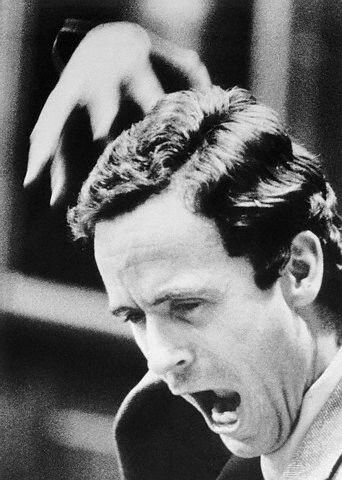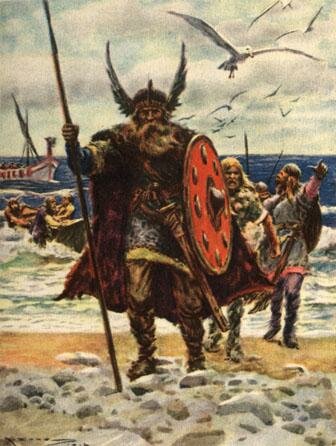10 Best Posthumous Awards
Suggested by SMSMost really big awards, like those given on a national level, are meant to recognize a great accomplishment. These awards give recipients a pat on the back for bravery, good deeds, excellent work, or brilliant ideas. The awarding organization wants award recipients to know the value of their contribution, so it usually helps if the person winning the award is there to accept it. But sometimes, achievements are so great they require recognition at all costs, even if the recognized party is already dead.
With all the talk that surrounded Heath Ledger’s recent posthumous Oscar win, it might seem like awards given after death are nothing to get excited about. However, the truth is they’re relatively rare, at least for big awards that get a lot of attention. Some awards, such as those honoring bravery in combat, are more likely than others to offer posthumous awards. But many of the most recognized awards do not allow posthumous bestowal at all. The Nobel Prizes, for example, aren’t supposed to be given to anyone not living. And honors like knighthood can never be bestowed on someone after death.
The following list includes 10 examples of noteworthy posthumous awards. These awards were either a rare exception to the no-posthumous-awards rule or were some of only a few such recognitions in recent times. Some are examples of great courage. And a few awards on the list were the beginnings of a lucrative career, which got its start only after death. Read on to learn more about these sometimes sentimental, sometimes commemorative, and always recognizable posthumous awards.
10. Larry Russell (1913-1954)

Russell one an Academy Award 17 years after his death for his work on the film Limelight.
Composer Larry Russell won the 1972 Academy Award for Best Musical Score for his work on the film Limelight. But Russell couldn’t accept the honor because he had already been dead for 17 years when it was given! In fact, the movie was completed in 1952, but it had been blacklisted in Los Angeles since the time of its release because of doubts about Charlie Chaplin, who was the film’s producer, director, and star. Chaplin was thought to have Communist leanings, and even though Limelight was his least political film of the period, it was banned in many American cities. It was not until 1972 that the film was shown in Los Angeles, where the Academy of Motion Picture Arts and Sciences decides on its annual awards. By that time, Russell had already died thinking his work would never be appreciated with a major award.
Limelight received three Oscars in 1972, but Russell’s award was the most interesting. The 17-year gap between Russell’s death and his award makes him unique among winners; it is the longest time to have ever passed between a recipient’s death and his presentation of the Oscar. But beyond that, there was also controversy surrounding his getting the Oscar nod at all. Some people have said that Russell wasn’t the person responsible for Limelight’s score; claims have been made that Russell Garcia should have won. But whether he deserved it or not, Russell’s Academy Award made history.
9. Bryan Budd (1977-2006)

Bryan Budd was posthumously awarded the Victoria Cross.
Some awards are rare because they honor only the most amazing acts of bravery. Military honors for gallant acts fall into this category. And the Victoria Cross, the British Commonwealth’s highest award, is one of the rarest and most respected military award given.
In 2006, Corporal Bryan Budd was posthumously awarded the Victoria Cross. His award was the most recent British example of the medal given to a serviceman, and only the 13th such award since World War II. Budd was killed in action in Afghanistan after subjecting himself to enemy fire so his section could escape.
Corporal Budd was a paratrooper for the British Army. He was awarded the VC not only for his gallant action on the day of his death, but also for a previous incident, in which he took heavy fire so a wounded soldier could be saved. Sadly, Budd was due to return home to his family just five days after his death. His brave actions were commemorated worldwide and were extremely deserving of such a rare honor, the Victoria Cross.
8. Teddy Roosevelt (1858-1919)

Teddy Roosevelt was awarded the Medal of Honor more than 90 years after his death.
The 26th president of the United States was also a recipient of the Medal of Honor, the highest military award in the nation. But he didn’t receive the award until more than 90 years after his death and more than 100 years after the incident that warranted it. It all started when Roosevelt resigned from his post at the U.S. Navy Department to volunteer for the Spanish-American War in 1898. He enlisted the help of his friends and a few cowboys to form the First U.S. Volunteer Cavalry Regiment, more popularly known as the Rough Riders. Roosevelt became the leader of the regiment after a series of promotions.
Roosevelt led the Rough Riders to their famous charges up Kettle Hill and San Juan Hill on July 1, 1898. He began the charges without any orders from his superiors, putting himself in grave danger over the course of the day. Soon after the incident, Roosevelt was nominated for the Medal of Honor, but was turned down for the award, probably because of some negative comments about the conditions of the war that he wrote in a letter.
In 1997, almost 100 years following Roosevelt’s brave stand in Cuba, Congressman Rick Lazio submitted a request that Roosevelt be reconsidered for the honor. It was approved, and the former president was posthumously recognized with the medal in 2001. He is the only U.S. president to have ever received the award.
7. Unknown Soldiers

The Tomb of the Unknowns in the United States is just one of many memorials to unidentified soldiers around the world.
All around the world, there are tombs of soldiers whose remains have never been identified. These “unknowns,” as they are often called, have been given laid to rest in graves that have come to be some of the most revered monuments of war. The United States, United Kingdom, France, Belgium, and Italy all have created tombs for unidentified soldiers who died in combat, and all of these soldiers have been posthumously presented with the U.S. Medal of Honor. The U.S. Unknown Soldiers were reciprocally awarded the Victoria Cross and other service honors from foreign nations.
With so many prestigious service awards, the Unknown Soldiers of the world are the most decorated people around. And all of their awards were awarded after death.
6. William Horning (1904-1959)

William Horning was the art director for Gigi.
William Horning is the only person to win two consecutive, posthumous Academy Awards. In 1959, he won for the first time for his work as the art director of Gigi, the film that went on to win best picture. That award came just over one month after Horning’s death. The following year, Horning received another two Oscar nominations, one for his work on North by Northwest, and another for art direction with Ben Hur. Horning won with Ben Hur, and become the first person to ever receive two Oscars after death.
5. William Vickrey (1914-1996)

William Vickrey was one of three people to be presented with the Nobel Prize posthumously.
Canadian professor William Vickrey is one of three people to have been presented a Nobel Prize after death, and the only person to achieve such a thing since the committee’s rules about posthumous awards were made stricter after 1974. The committees selecting Nobel Prize winners are careful to recognize only living contributors to world economics, physics, chemistry, literature, and peace, a policy which has drawn much criticism over the years. The no-posthumous rules have prevented some deserving people, like Mahatma Ghandi, from ever receiving an award.
Since awards were first presented in 1901, only living people have even been considered; deceased nominees were disqualified automatically. It used to be that people who died after they were nominated could win the award, which happened in two instances. But in 1974, the Nobel committee changed the rules. Now, recipients not only have to be living upon nomination, but they must also remain alive when the award is announced. William Vickrey was alive when he was announced as the winner of the economics award in October of 1996, but he died just three days later. Accordingly, he wasn’t living when the award was presented that December. He is the only posthumous award winner since the rules tightened.
4. Sean Taylor (1983-2007)

Sean Taylor was made a Pro Bowler after his death.
Washington Redskin’s safety Sean Taylor was the first football player to be selected posthumously for the National Football League’s Pro Bowl, and honor which was presented to him in 2007. Taylor was murdered in his Miami home of November 27, 2007 at just 24 years old. An armed intruder shot Taylor in the leg while he was sleeping. Although he was rushed to the hospital, the wound in Taylor’s femoral artery proved to be too much. He died, prompting an onslaught of sympathy and outrage from his fellow athletes and many fans.
Taylor was awarded with his second Pro Bowl berth less than a month after his death. His posthumous selection was the first time any American athlete in any sport had been nominated to an all-star team after death since hockey player Pelle Lindbergh did so in 1986.
3. Heath Ledger (1979-2008)

Heath Ledger won multiple awards after his untimely death.
No list of after-death award recipients would be complete without Heath Ledger. Ledger made headlines when he won the Academy Award for Best Supporting Actor at the 2009 ceremony. He was only the second person in history to win a posthumous Oscar for acting, joining fellow Australian actor Robert Finch.
Ledger died in January of 2008, shortly after he finished filming for The Dark Knight, in which he played the Joker. The film wasn’t released until summer, and wasn’t nominated for the Academy Awards until the next year. The early release of the movie and Ledger’s untimely death led many to believe he would be passed over for the prize, but they were proven wrong.
Ledger’s captivating performance earned him several other posthumous awards, including a 2008 Los Angeles Film Critics Circle Award, a 2009 Golden Globe Award, a British Academy of Film and Television Arts (BAFTA) Award, and a Best Actor International Award from the Australian Film Institute, which was the first posthumous award given by that group. Because of his Oscar win and many other posthumous awards, Ledger has been one of the most lauded actors ever.
2. George Carlin (1937-2008)

George Carlin was honored with the Mark Twain Prize after his death.
George Carlin was the first person to ever be awarded the Mark Twain Prize for American Humor after death. The prize is the most prestigious for comedy in the United States, presented annually by The Kennedy Center for the Performing Arts in Washington, D.C. The Mark Twain Prize honors comedians who have made a significant contribution to the field, and winners are honored by their peers in a long ceremony the night they receive the award.
Carlin died just four days after the Kennedy Center announced he would win the 2008 prize, in June of 2008. At first, the Kennedy Center didn’t know whether to proceed with the ceremony. But after taking to Carlin’s family, they decided to go ahead. There were no major changes to the presentation format, except that Carlin’s family received the award in his place.
1. John Kennedy Toole (1937-1969)

John Kennedy Toole received major acclaim, including the Pulitzer Prize, for his novel, A Confederacy of Dunces. Toole’s abysmal reception during his lifetime is part of what drove him to commit suicide. He had submitted the manuscript of his novel to Simon and Schuster, but it was rejected when the publishers commented that it was pointless.
Toole spent much of his life in New Orleans, living with his overbearing, overprotective mother, Thelma. He left the city to pursue his studies, but was ultimately drafted and returned home after his military service. Toole battled with depression all his life, a disorder that was compounded by the unfavorable reception of his writing. He left home and committed suicide in 1969.
Ten years after Toole’s death, his mother encouraged writer Walker Percy to look over the manuscript of Dunces. Percy loved the book and helped get it published. The novel was a huge success, and Toole was posthumously awarded the Pulitzer Prize for Fiction in 1981. Since then, Dunces has been translated into 18 languages and sold more than 1.5 million copies. Toole’s book continues to be popular to this day. For his huge success after death, he tops the list of winners of posthumous awards.










I find it unbelievable that Elvis Presley, arguably the biggest star that the U.S.A. has ever produced, has not been given a posthumous award.